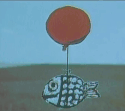|
Jack2142 posted:Wait an American Col. got ganked by PMC's? Yah, can we have a reference on this? There weren't that many friendly frags in OIF, I don't remember hearing about this one at all.
|
|
|
|

|
| # ? Jun 9, 2024 17:57 |
|
david_a posted:Certainly true in Sweden. There were strict rules about cutting down oak trees; the third time you got caught you were executed. Swedish oak still exists but it costs a fortune. For example, there's a Swedish whiskey that claims to be aged in Swedish oak barrels, but if you read the fine print only 10% of the oak used is Swedish; the rest is American. Visingsö is a nice place to take a long weekend in the summer.
|
|
|
|
So in every WW2 aviation video game I've played, there's always a concept of "War Emergency Power" for engine throttle. What exactly was this mechanism?
|
|
|
|
Thalantos posted:Yah, can we have a reference on this? I found the dude's wikipedia entry: https://en.wikipedia.org/wiki/Theodore_S._Westhusing There was a article written about his death that I remember reading, can't find it right now
|
|
|
|
turn it up TURN ME ON posted:So in every WW2 aviation video game I've played, there's always a concept of "War Emergency Power" for engine throttle. What exactly was this mechanism? Water injection, usually. https://en.wikipedia.org/wiki/Water_injection_(engine) Cools the cylinder, prevents pre-detonation (knocking), and some other effects as well. hogmartin fucked around with this message at 19:33 on Jan 3, 2017 |
|
|
|
turn it up TURN ME ON posted:So in every WW2 aviation video game I've played, there's always a concept of "War Emergency Power" for engine throttle. What exactly was this mechanism? Push the throttle past a mechanical stop, and it kicks out extra power (typically through water injection), use the power for aerial combat. Fucks up the engine pretty good, but if that 5 minutes of extra power keeps your pilot and airframe alive, then it's worth it.
|
|
|
|
Nebakenezzer posted:I found the dude's wikipedia entry: Wow, okay, how have I not heard of this? Read the news article, he and I were basically doing the same thing at the same time(training ISF in 05). And he's right, the whole thing was a depressing, massively corrupt poo poo show.
|
|
|
turn it up TURN ME ON posted:So in every WW2 aviation video game I've played, there's always a concept of "War Emergency Power" for engine throttle. What exactly was this mechanism? The engine on aircraft is often capable of more thrust than the throttle normally allows it to, but running at full capacity for an extended period risks damaging the engine. The throttle's stated 100% setting would just be the maximum safe power to apply and you could throttle it higher in an emergency. Some used water or water-methanol injection, some just opened the throttle to max. I've heard some planes even had a tie on the throttle that had to be physically broken by pushing to WEP, letting everyone see when you returned to the ground that you had activated it.
|
|
|
|
|
That wiki article is kinda scant on evidence for foul play
|
|
|
|
Scroll down and read some of the references? Edit: that wiki article is rear end, agreed
|
|
|
|
hogmartin posted:I remember hearing or reading that one of the big benefits of Britain's North American colonies was a continent full of trees that had never really been harvested (certainly not on an industrial scale), while Britain's forests at the time were pretty well tapped out. Lots of the American trees also happened to be mature trees of types that lent themselves well to building ships: tall straight pines for masts, sturdy dense oaks for hulls. I can't find a source for that at the moment though. Yeah, this sounds about right to me. See also why America was able to build really high quality frigates for the War of 1812.
|
|
|
|
Tias posted:If I may: What are some of the most spectacular dick moves pulled off by middle ages/early modern age mercs or employers? This is neither middle ages nor particularly clever, but mercs played a pretty huge part in the First Punic War so here's some stories. As a disclaimer, our most contemporary source wrote over 100 years after the fact, so there's likely to be some inaccuracies/exaggerations. Several years before the Pyrrhic War, a group of mercs went rogue and took over the city of Messana in Sicily, which is basically as close to Italy you can get while still being in Sicily. About 20 years later they're getting beaten by Syracuse, at the time one of the major powers on Sicily and probably the third most important settled power in the Western Mediterranean, , so they go to Carthage for help, and Carthage sends a garrison. Then, not long afterwards, they also asked Rome for a garrison. It's not entirely clear why; for most of their history, Rome and Carthage had had a fairly friendly relationship and they'd actually been allies, although largely nominal ones, during the Pyrrhic War 16 years back, which was the last major conflict in Southern Italy/Sicily, but their relationship had been deteriorating since then. Anyway Rome sent an army, and that's the story about how a rogue mercenary army took over a city and then 20 years later triggered a grueling 23 year war between the three major powers in the region. Now, you might say that they weren't mercenaries by that point and that's fair; after all, they'd been ruling a city for 20 years, so here's another one. The war has been going for 8 years by this point, and the Roman/Syracusan coalition controls about 2/3s of the island. Many of the remaining Carthaginian cities, however, are basically fortresses and will take an extremely long time to capture, especially since the Romans didn't really have ability to blockade them at this point, so they decide that the right plan to end the war is to land an army in North Africa and force Carthage to come to terms. They assemble an enormous fleet, and so do the Carthaginians. The Roman fleet, supposedly consisting of 330 ships and 140,000 men, beat the Carthaginian fleet of supposedly 350 ships and 150,000, and landed an army in North Africa. They start taking cities so the Carthaginians offer battle and decide to set up in the hills instead of the plains. The Roman general, knowing he has superior infantry but inferior cavalry, simply attacks and because the Carthaginian general was bad, he couldn't use his cavalry effectively(because, you know, lovely terrain) and gets crushed. They try to sue for peace but the Roman general offers such absurd terms that the Carthaginians decide they'd rather keep fighting. This is where our mercenary shows up, because over the winter a Carthaginian recruiter brings back a Spartan general named Xanthippus. Xanthippus basically says "your troops are good but your generals are dumbasses". The Carthaginians say "What, you think you can do any better?" and Xanthippus says "Well, actually, yes" and gets given command and crushes the Roman army a few months later. He beat the Roman garrisons on the mainland and then vanishes from the story with dark hints that the Carthaginian leadership thought he was going to try take control of the city or something. Without that battle, the war might have ended there; as it was, it would continue another 15 years. Last one: it's 240 BC, the Romans and Carthaginians have signed a peace treaty that boils down to "Carthage gets off of Sicily and pays Rome a giant pile of cash". Hamilcar Barca, the only successful Carthaginian general(although he showed up way too late to really accomplish anything), also guarantees his largely mercenary passage back to North Africa, where they'll finally get paid...except, the Carthaginian government claims to be broke and instead of dealing with each little group of arriving mercenaries by themselves, decides that the smart thing to do is to congregate this disgruntled army of troops before telling them "oh we don't have any money, would you like a tiny fraction of what we owe you?" The mercs respond with a "nnnooooopppeeee" and the Carthaginians, realizing that maybe gathering all the mercs in one place and telling them they weren't actually going to get paid, somehow find the money and give it to them. However, there's still this big army of mercenaries right outside Carthage so they're like "you know what, why don't you give us more money?" which the Carthaginians did, but ultimately it lead to a war between whatever troops(including other mercenaries) the Carthaginians could muster and this mercenary army and rebelling cities in North Africa. The Carthaginians ultimately won, but while that was going on another mercenary rebellion broke out in Sardinia, and the Romans, in order to stop those Sardinian pirates of course, took over both Sardinia and Corsica and Carthage wasn't in a position to do anything about it. After they'd beaten the mercenary army in North Africa the Carthaginians prepared a fleet to go to Sardinia but the Romans were like "oh that definitely violates the peace treaty we signed so we're going to take these islands and also you owe us more money for violating the peace treaty" and the Carthaginians decided they had no choice but to agree. tl;dr pay your mercenaries
|
|
|
|
Why did Age of Sail seamanship and nautical technology take so long to develop? Was there some technological hurdle to overcome?
|
|
|
|
zoux posted:Why did Age of Sail seamanship and nautical technology take so long to develop? Was there some technological hurdle to overcome? Horology was a pretty big one. It's easy enough to find your course by compass and your latitude by the sun, finding longitude takes some precise timepieces, and coming up with ones that would work well enough on a sailing ship was definitely a technological hurdle. https://en.wikipedia.org/wiki/Longitude_(book)
|
|
|
|
There was an amusing sideshow regarding mercenaries at the Battle of Manzikert; the Romans had hired two groups of mercenaries, one Muslim and one Catholic. The Muslim mercs decided they didn't want to fight other Muslims, and so they left. Then the Catholic mercs figured if those guys got to leave without fighting, why shouldn't they? And so they left, too. After the emperor was also abandoned by his reinforcements (led by his main rival), the battle was lost and the Emperor died from eye-gouging related complications courtesy of the rival, the Catholic mercs seem to have decided to set themselves up as rulers of a nice chunk of Anatolia. They even managed to kidnap the rival (now the Emperor's uncle and power behind the throne) and extort a hefty ransom for him. Then the Romans ended up hiring the Turks to kick out the mercs, which they did, but they also kept the land as well. So the moral of the story is... well, I don't know. They paid three times, and ended up hiring the guys they were fighting in the first place...
|
|
|
|
If you could go back in time make one of the holy commandments of the Orthodox Church be "Thou shalt not hire mercenaries because they will gently caress you over"
|
|
|
|
Jack2142 posted:If you could go back in time make one of the holy commandments of the Orthodox Church be "Thou shalt not hire mercenaries because they will gently caress you over" Tell that to the Protestants and Catholics, too. Jesus Christ on a pogo stick the Thirty Years War was a nightmare.
|
|
|
|
xthetenth posted:There is an argument I've run across that French ships in the Napoleonic period were unweatherly and fragile, and were rather overrated, speaking of prize value. This tends to be down to the different priorities of the British and French fleets, and the troubles in both design and construction that the French navy had post-Terror and well into the Napoleonic period. The French ships tended to be designed for relatively coastal work or for occasional long ocean voyages between colonies. Their ships of the line in particular were intended to stay in port until they sallied out as a fleet for an engagement. This favoured a a design built to be lighter and easier to construct and which could handle well in light winds (if it's stormy the battle is pretty much off - if it's calm then being able to make 2 knots and maintain useful steering when your enemy's ships are spinning in circles at 0.5 is handy). The British naval strategy on the other hand relied on maintaining a blockade in some of the worst weather spots in the northern hemisphere. The Channel Fleet, as an entity, was at sea continuously in the Bay of Biscay and Western Approaches, with individual ships staying out for months. The ships had to be physically tough and seaworthy in bad weather - British ships tended to be under-canvassed, or certainly shorter-masted, in relation to their (lighter) French counterparts which meant they could maintain more of their sail in greater winds. So the prize value of a captured French frigate that's been knocked about in the Atlantic for a few years, or the opinion of RN officer posted to a French prize Seventy-Four with leaky decks and split timbers, is going to be low. But build a ship with the strength of British practise and the design of the French and you have a formidable all-weather fighting machine, and that's what the 1800-onward RN ships tended to be. hogmartin posted:I remember hearing or reading that one of the big benefits of Britain's North American colonies was a continent full of trees that had never really been harvested (certainly not on an industrial scale), while Britain's forests at the time were pretty well tapped out. Lots of the American trees also happened to be mature trees of types that lent themselves well to building ships: tall straight pines for masts, sturdy dense oaks for hulls. I can't find a source for that at the moment though. Britain was severely stripped of useful oak for ship timbers by 1800 and there was a massive planting programme an several of the ancient Royal Forests (originally laid out as hunting grounds) were adopted as national oak reserves. In retrospect the idea of a beaurocrat in 1748 ordering trees to be planted to build ships of the line in 1900 is hilariously quaint. The present-day Forestry Commission was set up in 1919 to manage Britain's woodlands which had got badly depleted during WW1 due to the demand for two things: rifle stocks and colliery pit props. So wood was an important military raw material much longer than you (or certainly I!) might have thought. turn it up TURN ME ON posted:So in every WW2 aviation video game I've played, there's always a concept of "War Emergency Power" for engine throttle. What exactly was this mechanism? As already mentioned, this usually engaged water injection (usually mixed with methanol or other alcohol to prevent the water freezing and to provide lubrication to the internal parts). Spraying water into the air intake reduced the maximum temperatures when the fuel was burnt, allowing higher boost pressures and producing more power. Some engines also went into a weaker fuel:air mixture when WEP was engaged as the water did the cooling job of the excess fuel, allowing a more efficient and powerful burn. On the Rolls-Royce Merlin and Griffon 'WEP' simply involved opening the throttle all the way. The supercharger was sized and geared to produce continuous maximum power (6psi boost) at 18,500 feet (on the early versions used in the Battle of Britain, at least). This meant that at lower altitudes the 'charger could produce anything up to 25psi boost if the throttle was opened all the way - enough to grenade the engine in about five seconds. There was a system which automatically limited boost to 9psi, which could be reached with the throttle less than half open on the ground, and in the early days of 87 octane fuel you were supposed to use 9psi for no more than a minute, limit to 4psi in the climb and 2psi in the cruise. On the throttle quadrant of the Spitfire and Hurricane was a red tab - when flicked down that disabled the boost limiter, allowing up to 12psi at 18,500 feet. The engine was warranted to last no more than 10 hours of cumulative 12psi running. Pilots were instructed to use full boost for no more than 15 seconds at a time and they had to report (verbally and in writing) back on the ground if they used it at all so the engine could be given special checks before it would be allowed to fly again. The later versions replaced the red tab with an electrical switch hit by the throttle lever if it was pushed to full travel. A length of locking wire across the throttle gate stopped the pilot accidentally hitting it - shoving the throttle hard forward would break the wire so the ground crew would know to check the engine.
|
|
|
|
Yeah but the alternative is to convince/ coerce your own people to dive into the meatgrinder. Pretty sure Sweden would have run out of dudes if they'd tried to keep an all Swedish army. Mercenary armies are much more sustainable if you have the good sense to keep them in someone else's country.
|
|
|
|
Cythereal posted:Tell that to the Protestants and Catholics, too. Jesus Christ on a pogo stick the Thirty Years War was a nightmare.
|
|
|
|
P-Mack posted:Yeah but the alternative is to convince/ coerce your own people to dive into the meatgrinder. Pretty sure Sweden would have run out of dudes if they'd tried to keep an all Swedish army.
|
|
|
|
Indeed. Depending on the sources (Polttolunnaat, a recent Finnish work, to my knowledge untranslated as of yet, gives the amount of native infantry in G.A.R.S.'s force as being 10,000 when he invaded, with it rapidly depleting and already depleted by several decades of warfrare http://skskirjat.pikakirjakauppa.fi/tuote/backstrom_olli/polttolunnaat_eurooppa_sodassa_1618_1630/9789522223944"]) the amount of native troops varies, but, for example the whole Savolax län could muster only a single infantry regiment of 800, of whom 500 (whom my group re-enacts)were sent into Germany. Edit: And this was not the worst of it, the wars of 1600-1720 and the famines and plagues that followed killed somewhere between 50% to 75% percent of all people in Finland. Ataxerxes fucked around with this message at 23:42 on Jan 3, 2017 |
|
|
|
To add onto Merc chat, there's also Simon Bolivar's Albion Legions, a force of British veterans of the Napoleonic wars who sought to make their fortune in South America. I think the most recent research indicates that many of the Napoleonic "veterans" had actually fought in the Napoleonic wars*, but they did make a difference is several key battles, including the Battle of Carabobo and Battle of Pichincha. * I don't blame them for lying to their recruiters considering how much said recruiters lied to them.
|
|
|
|
Hieronymus Andreas von Trapdorf
|
|
|
|
zoux posted:Why did Age of Sail seamanship and nautical technology take so long to develop? Was there some technological hurdle to overcome? The sea gives no gently caress, and does not give back her dead. Once you've figured out something that works, you tend to stick with it; the "move fast and break things" approach to innovation isn't very popular when it comes to poo poo whose failure mode is "in seven years, your next of kind can file to have you declared presumed dead." That kind of attitude makes senses, but it tends to affect sailor's thinking once they've moved ashore, in my experience. This is probably why a lot of innovation in the maritime domain come from non maritime sources (e.g. Brunard), or come very slowly. On the naval side, once things start to move, they move pretty fast - just look at the introduction of the Dreadnought in the 1900's. We also have in mind however that building a ship takes a few years, so there's a significant lag there too.
|
|
|
|
It's interesting because I'm told that the Navy tends to be the most traditional of all the branches.
|
|
|
|
There was an old guard in the Royal Navy that wasn't exactly gung ho in replacing sails with steam, but it happened slowly and steadily through the 19th century.
|
|
|
|
|
The real clashes between the old guard and new tended to come between proponents of the battleship versus advocates of the submarine and carrier.
|
|
|
|
the real clash is whether or not to treat your sailors like human imo
|
|
|
|
Raenir Salazar posted:It's interesting because I'm told that the Navy tends to be the most traditional of all the branches. It's a stereotype that doesn't really stick. In World War 1, the navies of the world were the most prepared for new conflict. In world war 2, the Kriegsmarine submarine fleet was by far the most prepared branch of German armed forces for the battle to come. Meanwhile, the RN had totally stagnated, and like France on land, had neglected the lessons of the last war. Cultures in armed forces are strange things
|
|
|
|
Nebakenezzer posted:Meanwhile, the RN had totally stagnated, and like France on land, had neglected the lessons of the last war. That's a strong way to describe the inventors of the aircraft carrier and the first navy in the world to launch a successful carrier strike, I think.
|
|
|
|
feedmegin posted:That's a strong way to describe the inventors of the aircraft carrier and the first navy in the world to launch a successful carrier strike, I think. And yet, look at the RN's development of carriers and carrier doctrine versus the Americans and Japanese.
|
|
|
|
Carriers were really not very relevant to the war the Royal Navy was going to fight in WWII. Convoys were implemented swiftly, sonar was widely used, and on the whole I think the British were significantly the most effective in the area of anti-submarine warfare, relative to the US and especially the Japanese.
Fangz fucked around with this message at 04:06 on Jan 4, 2017 |
|
|
|
Cythereal posted:And yet, look at the RN's development of carriers and carrier doctrine versus the Americans and Japanese. 'Took what in hindsight turned out to be a suboptimal path' and 'totally stagnated' are very different. Note that US carrier doctrine prewar was that they were there to support the battleships in a decisive Jutland-style slugfest.
|
|
|
|
feedmegin posted:'Took what in hindsight turned out to be a suboptimal path' and 'totally stagnated' are very different. Note that US carrier doctrine prewar was that they were there to support the battleships in a decisive Jutland-style slugfest. Kind of but not really, similar to the Japanese in that that was their role on paper but their actual use in fleet exercises was pretty independent and a good preparation for the war as actually fought.
|
|
|
|
Cythereal posted:The real clashes between the old guard and new tended to come between proponents of the battleship versus advocates of the submarine and carrier. That happened in the thirties and forties, the move to steam was in the last decades of the 19th century. The old guard by the time the carriers showed up were the new guard when Fisher started building submarines and dreadnoughts.
|
|
|
|
Fangz posted:Carriers were really not very relevant to the war the Royal Navy was going to fight in WWII. Convoys were implemented swiftly, sonar was widely used, and on the whole I think the British were significantly the most effective in the area of anti-submarine warfare, relative to the US and especially the Japanese. I'd highly disagree there. Escort carriers were key tools in the fight against U-Boats, and Britain's lack of significant carrier assets in the Pacific directly contributed towards their early losses against the Japanese. Ceding their advantage in carrier aviation burned them badly in the early war, and even by the end of the war they were still highly reliant on US carrier assets in both the Atlantic and the Pacific.
|
|
|
|
Acebuckeye13 posted:I'd highly disagree there. Escort carriers were key tools in the fight against U-Boats, and Britain's lack of significant carrier assets in the Pacific directly contributed towards their early losses against the Japanese. Ceding their advantage in carrier aviation burned them badly in the early war, and even by the end of the war they were still highly reliant on US carrier assets in both the Atlantic and the Pacific. They actually tried carriers for ASW in the beginning stages of the war though - and it flat out didn't work: Wikipedia posted:Some British naval officials, particularly the First Lord of the Admiralty, Winston Churchill, sought a more 'offensive' strategy. The Royal Navy formed anti-submarine hunting groups based on aircraft carriers to patrol the shipping lanes in the Western Approaches and hunt for German U-boats. This strategy was deeply flawed because a U-boat, with its tiny silhouette, was always likely to spot the surface warships and submerge long before it was sighted. The carrier aircraft were little help; although they could spot submarines on the surface, at this stage of the war they had no adequate weapons to attack them, and any submarine found by an aircraft was long gone by the time surface warships arrived. The hunting group strategy proved a disaster within days. On September 14, 1939, Britain's most modern carrier, HMS Ark Royal, narrowly avoided being sunk when three torpedoes from U-39 exploded prematurely. U-39 was forced to surface and scuttle by the escorting destroyers, becoming the first U-boat loss of the war. The British failed to learn the lesson from this encounter: another carrier, HMS Courageous, was sunk three days later by U-29. It wouldn't be until much later with improvements in radar and ASW weaponry that carriers became relevant. And even then arguably it was land based planes that really made the difference. Better carriers probably wouldn't have made a difference in the Pacific either. The Royal Navy was severely overmatched there, and there was no real prospect of a British Midway happening. I don't think it was bad, also, that the UK was reliant on US carrier assets. It meant the different allies focused on their strengths. There was little point for the UK to try to spend a poo poo ton of resources trying to duplicate what the US was slowly learning at great cost in the Pacific. Why build your own carrier aircraft when the US can just reallocate their massive numbers of obsolescent Avengers and Wildcats? Fangz fucked around with this message at 05:56 on Jan 4, 2017 |
|
|
|
Cyrano4747 posted:It also noteworthy that the wood on Australian Enfields is some awful local poo poo. It's pretty but oh god is it prone to cracks. I looked this up as I was suprised to read Australia had rubbish trees. Seems it's some wood called coachwood. I've never even heard of that tree, looks to be an eastern states thing only. Western Australia and some nice Karri and Jarrah though. The trees are here but eastern stato's doing there own lamo thing. E: It seems also that coachwood is a rain-forest tree so good job clearing them out guys. Fo3 fucked around with this message at 06:07 on Jan 4, 2017 |
|
|
|

|
| # ? Jun 9, 2024 17:57 |
|
Phew, made it through the backlog. Does anyone care to explain how AEW&C planes work or what they do?
|
|
|








 Yes, it's like a lava lamp.
Yes, it's like a lava lamp.





























